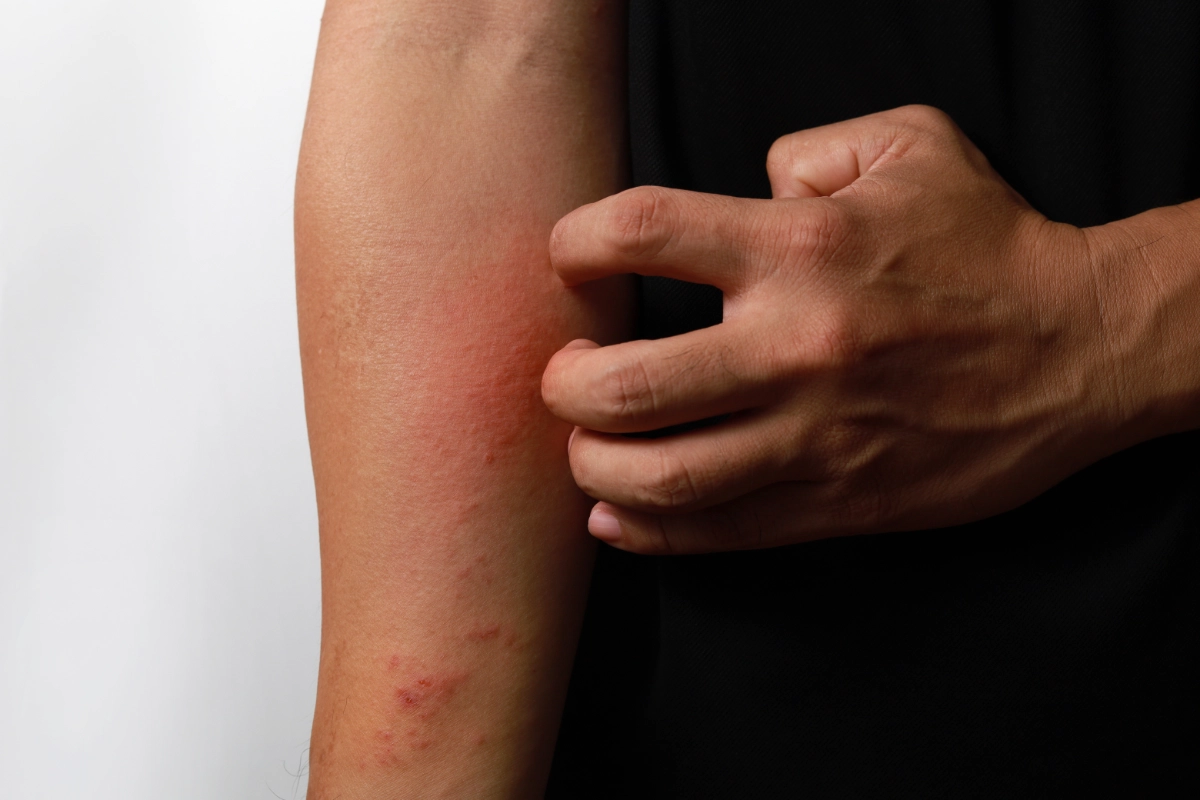
What Exactly Is Atopic Dermatitis?
Atopic dermatitis, often referred to as eczema, is a chronic skin condition that causes the skin to become dry, itchy, and inflamed. It’s one of the most common skin disorders, especially in children, though it can affect people of any age.
Why Does Atopic Dermatitis Happen?
Atopic dermatitis occurs when the skin’s natural barrier is weakened, making it less able to retain moisture and more susceptible to irritants, allergens, and infections. The result? Persistent itching, redness, and often painful flare-ups.
Several factors can contribute to this skin barrier breakdown:
- Genetics
- Immune system dysfunction
- Environmental triggers
- Skin microbiome imbalance
What Increases the Risk of Developing Atopic Dermatitis?
Although the exact cause isn’t fully understood, several factors are known to raise the risk of developing or worsening atopic dermatitis:
- Family history of eczema, asthma, or allergies
- Living in a dry or polluted climate
- Frequent use of harsh soaps or skin products
- Exposure to allergens (dust mites, pet dander, pollen)
- Emotional stress
Understanding the Symptoms of Atopic Dermatitis
Atopic dermatitis is more than just dry skin. Its symptoms can vary by person and severity but often include:
- Dry, scaly patches
- Intense itching, especially at night
- Red or brownish-gray rashes
- Thickened, cracked, or leathery skin
- Raw, sensitive areas caused by scratching
In infants, eczema often appears on the face and scalp. In older children and adults, it’s more common in the folds of the elbows, knees, neck, and hands.
Living with Eczema: It’s Not Just a Skin Problem
Atopic dermatitis can have a real impact on your quality of life. Constant itching and visible rashes can lead to sleep issues, low self-esteem, and even anxiety or depression. But you’re not alone—and you’re not without options.
What Can Trigger a Flare-Up?
Common eczema triggers include:
- Hot, humid, or very dry weather
- Certain fabrics (like wool or synthetic materials)
- Soaps, detergents, and fragrances
- Stress or emotional upsets
- Sweat or overheating
Identifying your personal triggers can help you avoid flare-ups and keep symptoms under control.
The Good News: Atopic Dermatitis Can Be Managed
While there’s no cure for eczema, there are many ways to treat and manage it effectively. From gentle skincare routines and prescription creams to lifestyle adjustments and advanced biologic therapies, help is available.
Don’t let atopic dermatitis rule your life. Our team is here to help you soothe your skin, reduce flare-ups, and regain control. Reach out today to learn more about treatment options that work for you.
